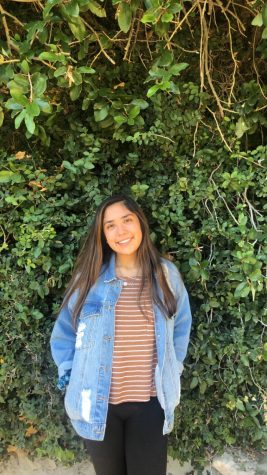Volunteer Services Alternative Break experiences conclude
April 7, 2021
Coordinated by the Leadership and Volunteer Services, the Alternative Break Program allows UTSA students to receive hands-on learning opportunities on social issues that affect the San Antonio community. The mission of the program is “to empower and challenge students to understand their relationship with the global community through education, reflection and direct service.”
Past experiences have been scattered throughout the state and even to places like Georgia, Grand Canyon National Park and Puerto Rico. Unfortunately, because of the pandemic, the direct service aspect of the program has been compromised. Despite restrictions, students were still able to participate in community service events and have meaningful and open discussions about the issue affecting their community.
One experience, which focused on food insecurity, was able to decorate a fridge for donation and volunteer at community gardens. Leslie Rosas, one of the student leaders, mentioned the necessity of students learning about such issues. “I think during a hard time like this it’s something that people don’t really know a lot about and talking about it is one more thing to help,” Rosas said. “I feel like this is something we can do for the community.”
Leslie’s fellow leader on the experience, Ethan Guerrero, pointed to his personal history with food insecurity as his reason for tackling such a heavy topic during his alternative break. “I joined because of personal experience either not being able to find a meal or being at the poverty line,” Guerrero said. “You want to educate others and you want to prevent others from not feeling the way you have felt. You want your voice to be heard and to serve others with your resources.”
Another experience tackled the timely social issue of Racial Equity. Vanessa Sanchez, a student leader with the program, described the wide range of issues her team discussed during the experience. “It is a pretty broad issue, but some of the topics we discussed are the importance of being an active citizen, misrepresentation of minorities, and more
recently Asian-American hate crimes,” Sanchez said.
Eliesha Perez, who led the Youth homelessness and development experience, joined the program both because of her love for helping others and because of her past familial experiences. “I have a passion for serving my community, especially the youth population,” Perez said. “My parents’ immigrant experience migrating from a developing country has definitely shaped my perspective on life and the aspects that can come along with poverty, such as homelessness.”
One of the main objectives of the Alternative Break experience is to, through education, engage and equip students with the tools needed to advocate and potentially solve the social issues they learn about in their experience. Elisha’s explanation of what she learned goes much deeper than the concept of Youth Homelessness. “The experience has taught me about topics, like intersectionality and life in the foster care system, on a deeper level than I originally thought I knew about,” Perez said. “Also, I learned how to connect with community partners, plan our program material, and lead meetings and service projects.”
For Leslie, learning about the growing number of people who were food insecure was frightening and was one of the most interesting and significant takeaways.“I think what was startling to me was the increasing number of people who are food insecure,” Rosas said. “I didn’t realize how many more people are food insecure every single year and it doesn’t look like it’s stopping any time soon. We have so many resources and you would think it would go down but realistically it’s not.”
In addition to learning about social justice issues, participating in community service events and meeting new people, Elisha added the importance of education on such topics for society as a whole.
“Our society cannot evolve for the better if citizens aren’t continuing to learn, understand and get involved in the obstacles holding society back,” Perez said. ”In an experience like this, everyone can learn something from the group and everyone can teach the group something. Participants bring to the table whatever they can because everyone has a different perspective on life and that’s what makes an experience like this important and impactful.”






